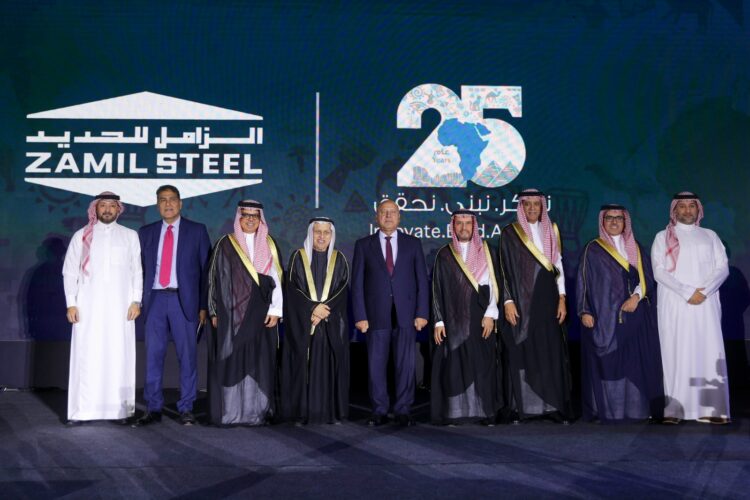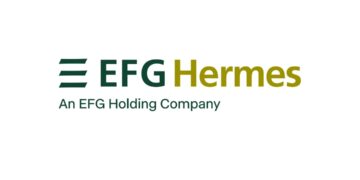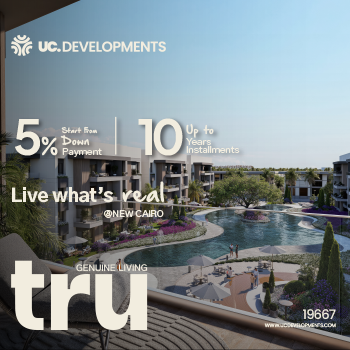Zamil Steel Holding (Zamil Steel) celebrated its 25th anniversary in Egypt under the patronage of the Deputy Prime Minister and Minister of Industry and Transport of Egypt, Lieutenant General Engineer Kamel Al-Wazir, in the presence of the Deputy Ambassador of Saudi in Cairo Mr. Abdulrahman Al-Dahas, Zamil President Mr. Nawaf Al-Zamil and General Manager of Zamil Egypt Engineer Khaled Saad.
For his part, Engineer Kamel Al-Wazir, Deputy Prime Minister, stressed in his speech the importance of President Abdel Fattah Al-Sisi’s directives to transform Egypt into a regional industrial center in accordance with the latest environmental and sustainable standards. He pointed out that the Ministry of Industry has prepared the National Industrial Strategy, which includes a future vision that capitalizes on Egypt’s assets, such as its strategic location, advanced infrastructure and natural resources, in addition to monetary and fiscal policies that stimulate investment. The minister emphasized the importance of deepening local manufacturing and supporting green industries, stressing that metal industries are one of the priority sectors in the strategy.
The minister noted the government’s support for increasing the production capacity of local factories to meet the needs of the local market and enhance the export capacity of Egyptian factories, contributing to raising the quality of Egyptian products in international markets.
Zamil Holding is considering establishing a new factory in Egypt starting next year, with a production capacity of 36,000 tons per year within three years, said Khaled Saad, director of Zamil Holding in Egypt, on the sidelines of the company’s silver jubilee celebration. He explained that the factory will be built in three phases, and that the company is looking to enter the petrochemical, oil and gas markets, noting that the investment cost of the project is still under study. He added that the factory will include three production lines, half of which will be for export.
Regarding local components, Khaled Saad noted that the local component in current products is less than 30%, due to the use of raw materials that are not currently produced in Egypt. He explained that the state’s plan to establish factories in areas such as Suez and others to produce these raw materials, which are used in the manufacture of heavy sectors and plates, will have a major impact in supporting the metal facilities industry in Egypt.
Khaled Saad spoke about the company’s successes in the field of exports, saying: “We have achieved export growth of 40% of total production, opened new markets in Turkey, and are working to restore activity in Libya, Algeria, Morocco and Benin. We also seek to enter new European markets, such as Hungary and Slovakia, and we have opportunities to supply our products to Europe.” He added that the company aims to reach 100,000 tons of exports within two years, targeting 15% growth by 2025.
During the event, the company presented a complete history of the company since its establishment in the Kingdom of Saudi Arabia in 1976 and the establishment of factories outside the Kingdom in India, Vietnam and Egypt, as well as exports to all countries of the world.
In addition to the detailed explanation of the objectives and principles of the company and the purpose of its expansions and continuous development in the fields of designs and engineering and operational solutions in its factories, its activity and investments in the Arab Republic of Egypt and how it has positively affected the support of industrial, commercial and service projects and upgrading the quality and economics of engineering solutions to serve the Egyptian market and the Arab and African markets within the framework of serving all the requirements of industrial, service, commercial and military sectors and educational facilities from universities and schools as well as health complexes and many other specialties in the fields of storage, entertainment malls and stations.
The company presented what has been achieved during 25 years in its factories in Egypt to reach the production of about one million and two hundred thousand tons of metal structures representing about 7400 projects in various purposes and exporting about 450 thousand of them to more than sixty African and Arab countries in addition to the establishment of three factories in Vietnam, Egypt and India to exceed the annual production capacity of more than 250 thousand tons of metal structures of all kinds. The curtain closed with its commitment to the highest standards of quality, innovation, construction and achieving goals.




















